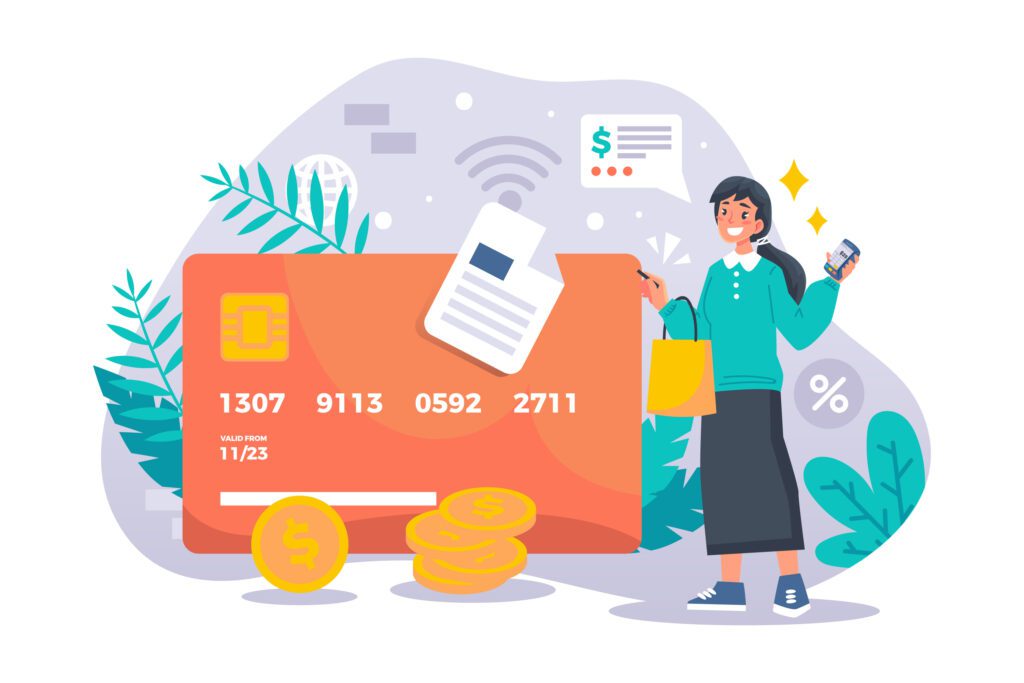In today’s digital age, your credit score plays a pivotal role in your financial well-being. Whether you’re applying for a loan, renting an apartment, or even seeking employment, your credit history is often a key factor that determines your eligibility and the terms you receive. Therefore, safeguarding your credit is crucial. In this guide, we’ll explore various strategies and tips to help you protect your credit and maintain a healthy financial profile.

- Monitor Your Credit Report Regularly
One of the fundamental steps in protecting your credit is to monitor your credit report regularly. You can obtain a free copy of your credit report from each of the three major credit bureaus (Equifax, Experian, and TransUnion) once a year at AnnualCreditReport.com. Review your report for any inaccuracies, such as incorrect personal information, accounts you don’t recognize, or suspicious activity. Reporting errors promptly ensures your credit history accurately reflects your financial behavior.
- Set Up Credit Alerts
In addition to annual checks, consider enrolling in credit monitoring services or setting up credit alerts. These services can notify you of significant changes to your credit report, such as new accounts opened in your name, inquiries, or late payments. Early detection of unauthorized activity can help you take swift action to protect your credit.
- Protect Your Personal Information
Identity theft is a significant threat to your credit. Safeguard your personal information by following these precautions:
a. Use strong, unique passwords for online accounts. b. Enable two-factor authentication whenever possible. c. Shred sensitive documents before disposing of them. d. Be cautious about sharing personal information online or over the phone. e. Regularly check your bank and credit card statements for unusual transactions.
- Be Wary of Phishing Scams
Phishing scams involve fraudulent attempts to obtain your personal and financial information through emails, text messages, or fake websites. These scams often appear legitimate, so it’s essential to be cautious. Avoid clicking on suspicious links or providing personal information unless you’re certain of the source’s authenticity.
- Manage Your Credit Card Usage
Credit cards can be powerful tools for building credit, but they can also lead to financial trouble if not managed wisely. To protect your credit:
a. Pay your credit card bills on time to avoid late fees and negative marks on your credit report. b. Keep your credit card balances low relative to your credit limits (aim for a utilization rate below 30%). c. Avoid opening too many credit accounts at once, as this can negatively impact your credit score. d. Monitor your credit card statements for unauthorized charges.
- Consider a Credit Freeze or Fraud Alert
If you suspect you may be a victim of identity theft or have experienced a security breach, consider placing a credit freeze or fraud alert on your credit reports. A credit freeze restricts access to your credit report, making it challenging for identity thieves to open new accounts in your name. A fraud alert warns creditors to take extra steps to verify your identity before extending credit.
- Educate Yourself About Credit
Understanding how credit works is essential for protecting it. Familiarize yourself with key credit concepts, such as credit scores, credit reports, and credit-building strategies. The more you know, the better equipped you’ll be to make informed financial decisions and avoid common credit pitfalls.
- Pay Attention to Joint Accounts and Authorized Users
If you share credit accounts with someone else, like a spouse or family member, their financial behavior can impact your credit. Keep a close eye on joint accounts and authorized users to ensure responsible credit management. If necessary, consider removing authorized users or closing joint accounts that are causing credit issues.
- Report Lost or Stolen Cards Immediately
If your credit card or identification is lost or stolen, report it to the issuer or relevant authorities immediately. Promptly reporting lost or stolen cards can limit your liability for fraudulent charges and help protect your credit.
- Seek Professional Help if Needed
If you find yourself in financial distress and unable to manage your debts, consider seeking professional assistance from a credit counseling agency or a financial advisor. They can help you create a plan to address your financial challenges and protect your credit.
Conclusion
Your credit is a valuable asset that requires careful protection. By staying vigilant, monitoring your credit, and following these tips, you can maintain a healthy credit profile. Remember that protecting your credit is an ongoing process, and it’s worth the effort to ensure your financial future remains secure. Start today, and your credit will thank you tomorrow.